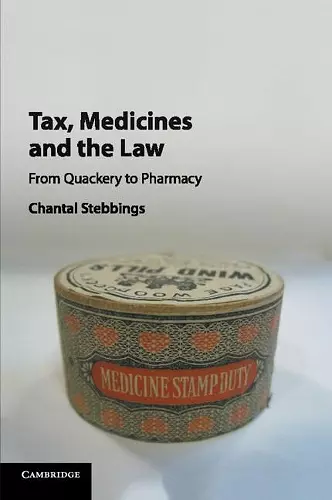Tax, Medicines and the Law
From Quackery to Pharmacy
Format:Paperback
Publisher:Cambridge University Press
Published:13th Dec '18
Currently unavailable, and unfortunately no date known when it will be back
This paperback is available in another edition too:
- Hardback£105.00(9781107025455)

This book reveals the surprising impact of medicine stamp duty (1783–1941) on pharmaceutical practice and the interface of law and government.
For anyone interested in the history of law, taxation or medicine, this title examines the unexpected consequences that arose from the introduction of the medicine stamp duty (1783–1941). It reveals the profound effects on the relationship between law and government, the professionalisation of pharmacy and the perceived integrity of 'quack' medicines.In 1783, a stamp duty was imposed on proprietary or 'quack' medicines. These largely useless but often dangerous remedies were immensely popular. The tax, which lasted until 1941, was imposed to raise revenue. It failed in its incidental regulatory purpose, had a negative effect in that the stamp was perceived as a guarantee of quality, and had a positive effect in encouraging disclosure of the formula. The book explains the considerable impact the tax had on chemists and druggists - how it led to an improvement in professional status, but undermined it by reinforcing their reputations as traders. The legislation imposing the tax was complex, ambiguous and never reformed. The tax authorities had to administer it, and executive practice came to dominate it. A minor, specialised, low-yield tax is shown to be of real significance in the pharmaceutical context, and of exceptional importance as a model revealing the wider impact of tax law and administration.
ISBN: 9781108716994
Dimensions: 229mm x 151mm x 13mm
Weight: 380g
256 pages